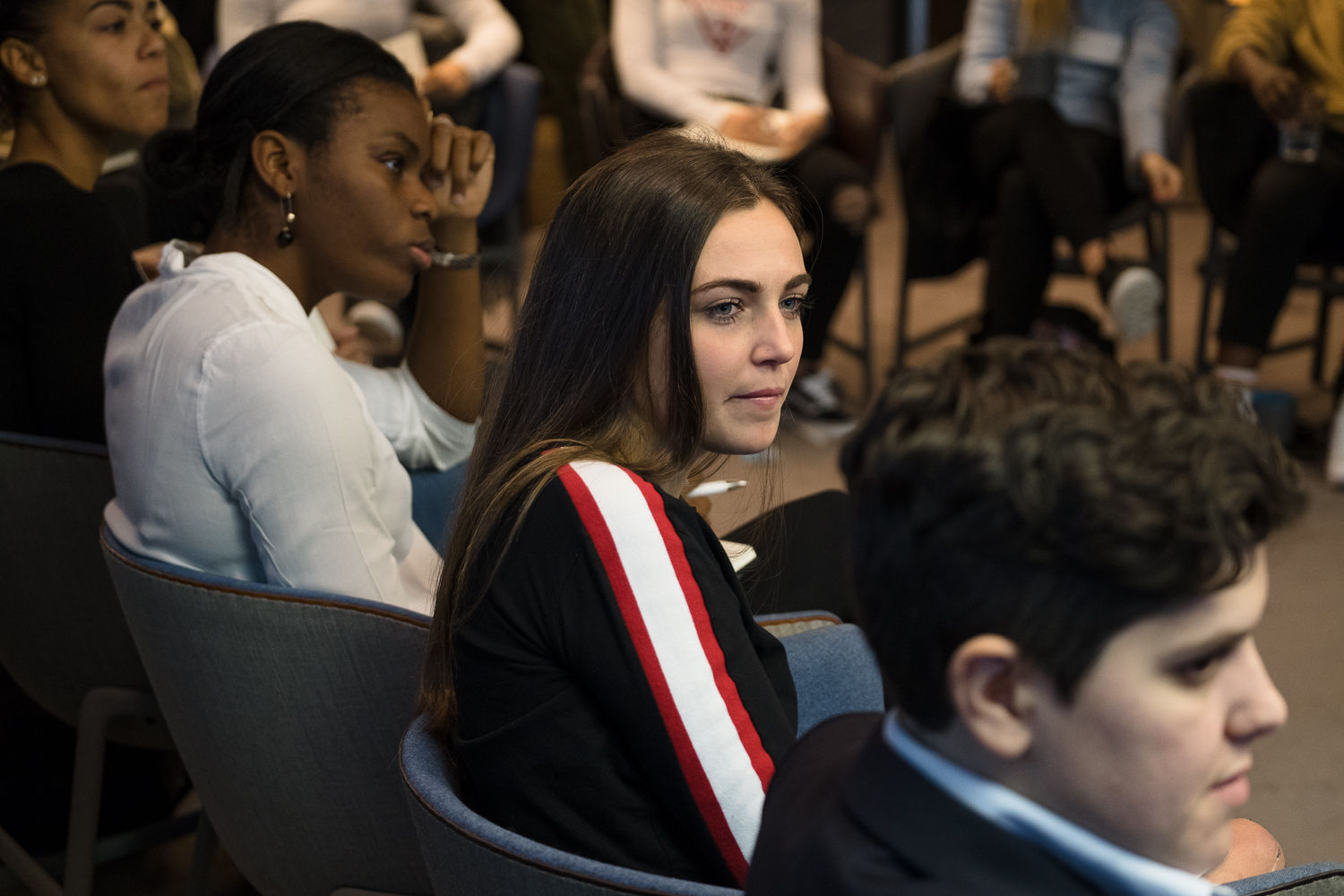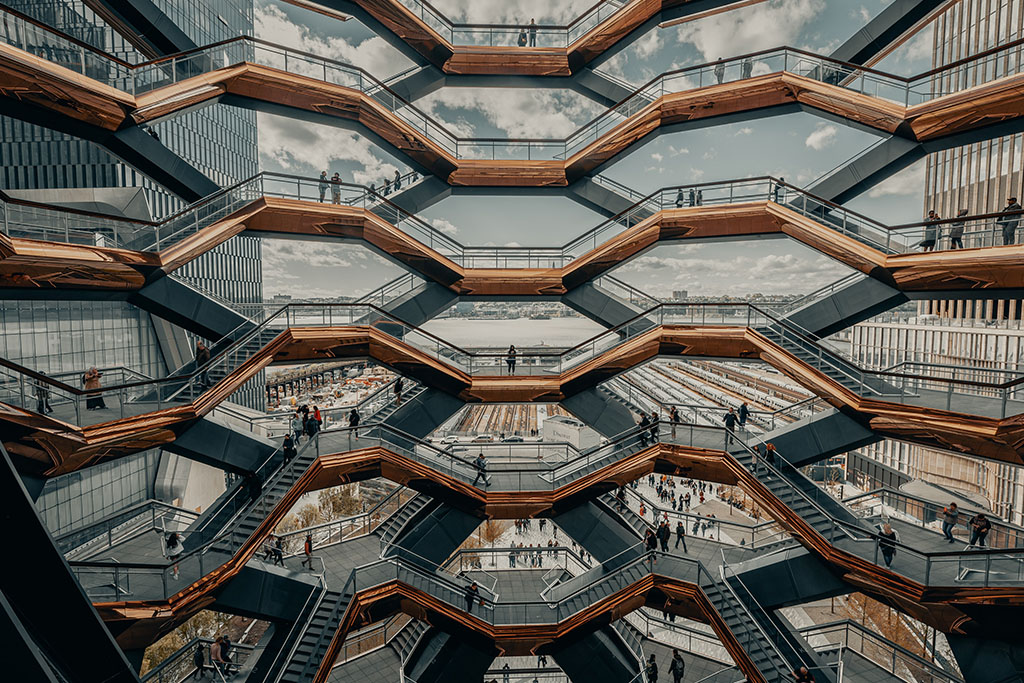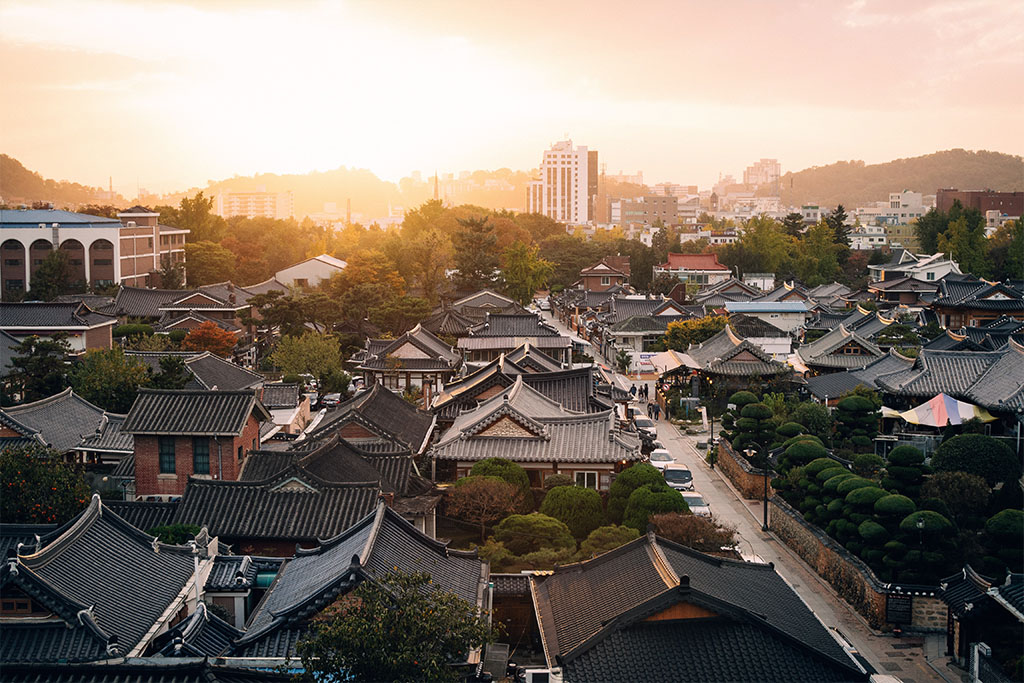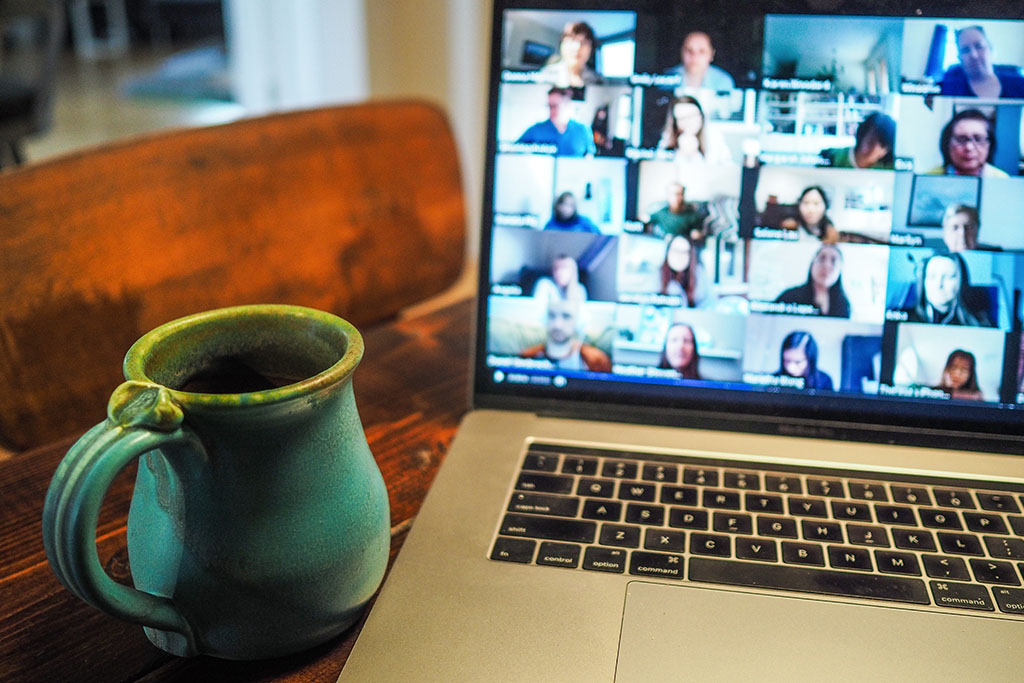In this latest Monocle and The Adecco Group Foundation podcast, we hear the views and experiences of the lockdown and gradual release of restrictions from a range of people from academics to delivery drivers across Europe, South America and Asia. Some see sustained changes to the way they will work in future, while others are witnessing a fragile evolution, at best. In the meantime, the pandemic-generated divide between those who can and cannot work from home, has become a new yardstick for inequality. But for all, the importance of resilience – as individuals, through family, business and community networks – is gaining traction.

As a society, we have decided to put the health and wellbeing of citizens above GDP
Lynda Gratton, professor of Management Practice at London Business School in the United Kingdom, says the effects of COVID-19 have forced people to face some fundamental issues, including: what do they really value, how do they want to live, how they face challenges and implications for the workplace. She says our reliance on low-paid support workers on the front line, in the hospitals and healthcare, and those working in essential shops, is teaching us to appreciate them more and that a crisis is a learning opportunity for us all.
She says it’s clear that as a society, we have decided to put the health and wellbeing of citizens above GDP, but that she will be disappointed if the new normal reverts to the pre-pandemic paradigm. She wants to see us influence what sort of communities we want to belong to – from the family unit to our neighborhoods and cities. “There must be a societal voice for the future,” she says, that helps us answer the question: “What sort of world do we want to live in?”
If that’s the strategic view, what has changed on the ground in the world of work during the pandemic? What is life like for the low paid and vulnerable?
In Brazil – a country the pandemic has hit hardest in Latin America – Wesley de Jesus has worked as a delivery driver for three years and he wants the companies who contract drivers like him to show more social responsibility. “Many delivery apps had high traffic, but the companies had little regard for workers’ health,” he said. Asked what was more important, financial security or health, he says his biggest fear was being infected with COVID-19.
Although unconnected, but still in the Brazilian logistics sector, Junta Local, a company in Rio de Janiero is creating a new app that connects producers, delivery drivers and consumers more directly to ensure better conditions and appreciation for delivery staff. It also promotes the use of more eco-friendly delivery options via cycles, motorbikes and cars. Bruno Negrão, co-founder of Junta, said the business sought to treat their delivery people with more respect, in contrast to some other companies in the sector.
Career resilience lies in adaptability
From sport, Great Britain Olympic and Chelsea footballer Anita Asante says the tight-knit traditional team activities of training and playing together were replaced, almost overnight as lockdown came into force. Her new situation suddenly became solitary, where she was required to rely on her own personal motivation and self-discipline to continue training.
During this time she also reflected on how the many challenges she had faced during her playing career – including moving between countries and suffering injuries – had built her own spirit of resilience. In that context she says she is fearless about what’s ahead in her career transition and she’s not afraid to try new opportunities. Anita says she has developed new capabilities, including speaking at events, and is actively thinking about her professional next steps, perhaps into football coaching or management. She also has a fresh perspective on how we all relate and the value of community action – coming together to do great things that benefit us all.
Mungo Design, based in Plettenberg Bay, South Africa, is a textile business with its own mill, employing 80 people. Managing director Dax Holding was determined that during lockdown he would continue to pay wages to his employees. And this was achieved literally at the expense of the senior people in the business. He and his fellow directors took pay cuts and passed on the savings to fund salaries of their workers. Seamstresses who could work at home redirected their efforts to make face masks and also doctors’ PPE.
Dax said Mungo regards its employee community as family. “We all have to look out for each other and we hope that our people will also be ambassadors for good health and hygiene practices in their families and neighborhoods.”
Collaboration networks are key to build resilience for businesses
In Asia, a co-working space company, TheDesk, is building resilience by sharing more than just desks as its boss looks to expand the business model to contribute more widely to their community: sharing expertise and creating opportunities within their network.
Thomas Hui, co-founder of the Hong Kong company says 90 percent of businesses in Hong Kong are in survival mode. He sees his role as helping to identify potential partnerships for co-creation and collaboration across companies. As an example, he brought together a textile manufacturer and a leading-edge fashion designer to produce exclusive new face mask designs which are purchased by larger corporate organizations. “We are not just limited to sharing hardware and we’re not just a solution for the workplace, but we work for what’s best for business,” says Thomas.
Listen to the Way to Work podcast series on Monocle Radio



